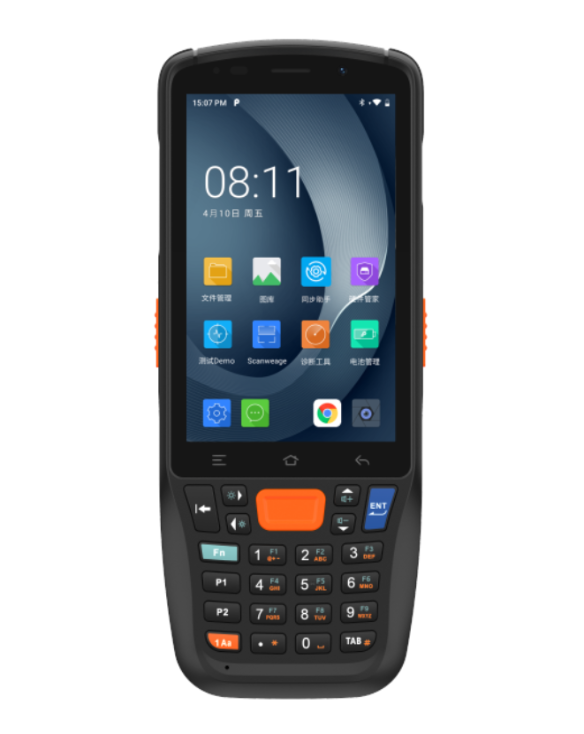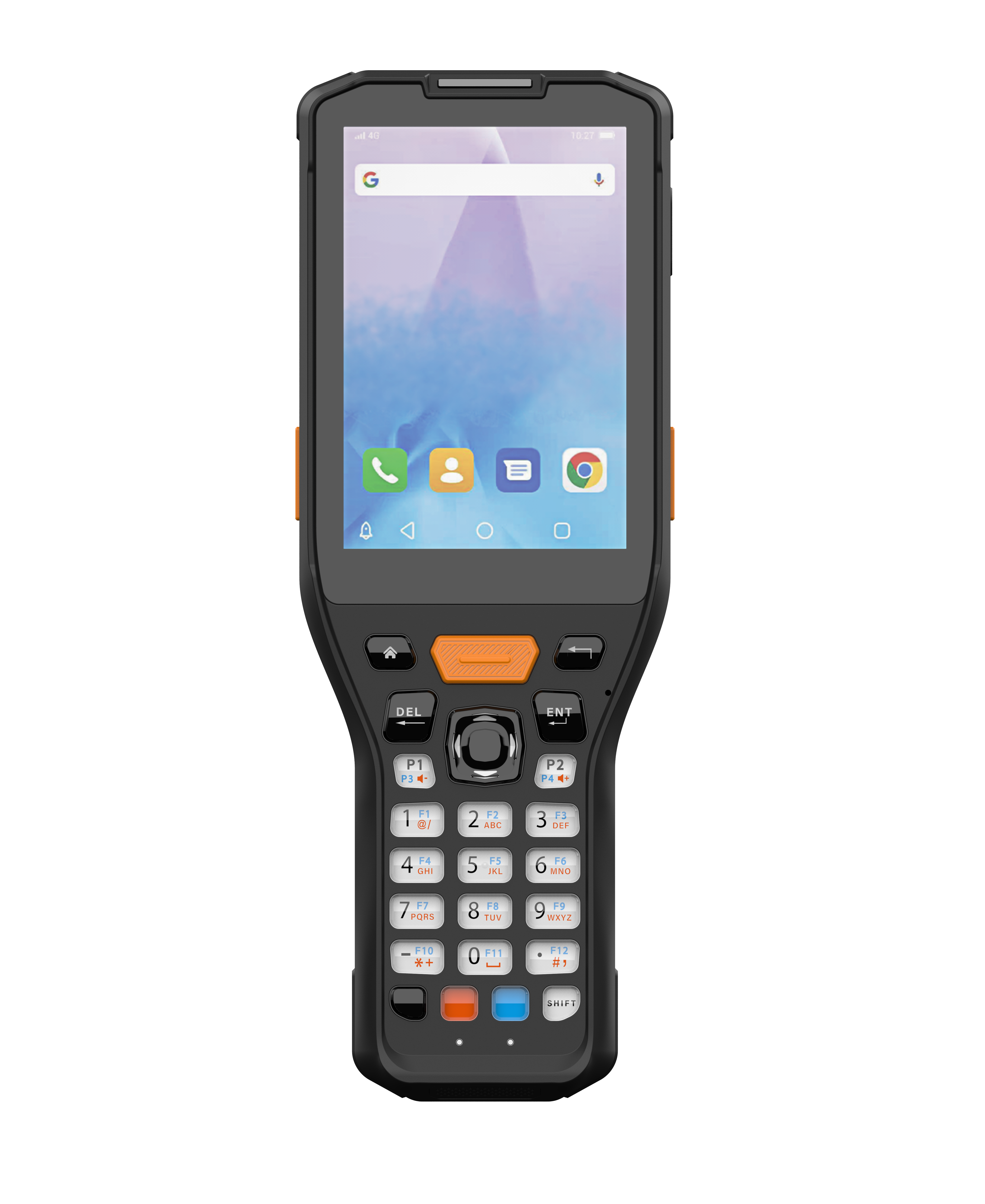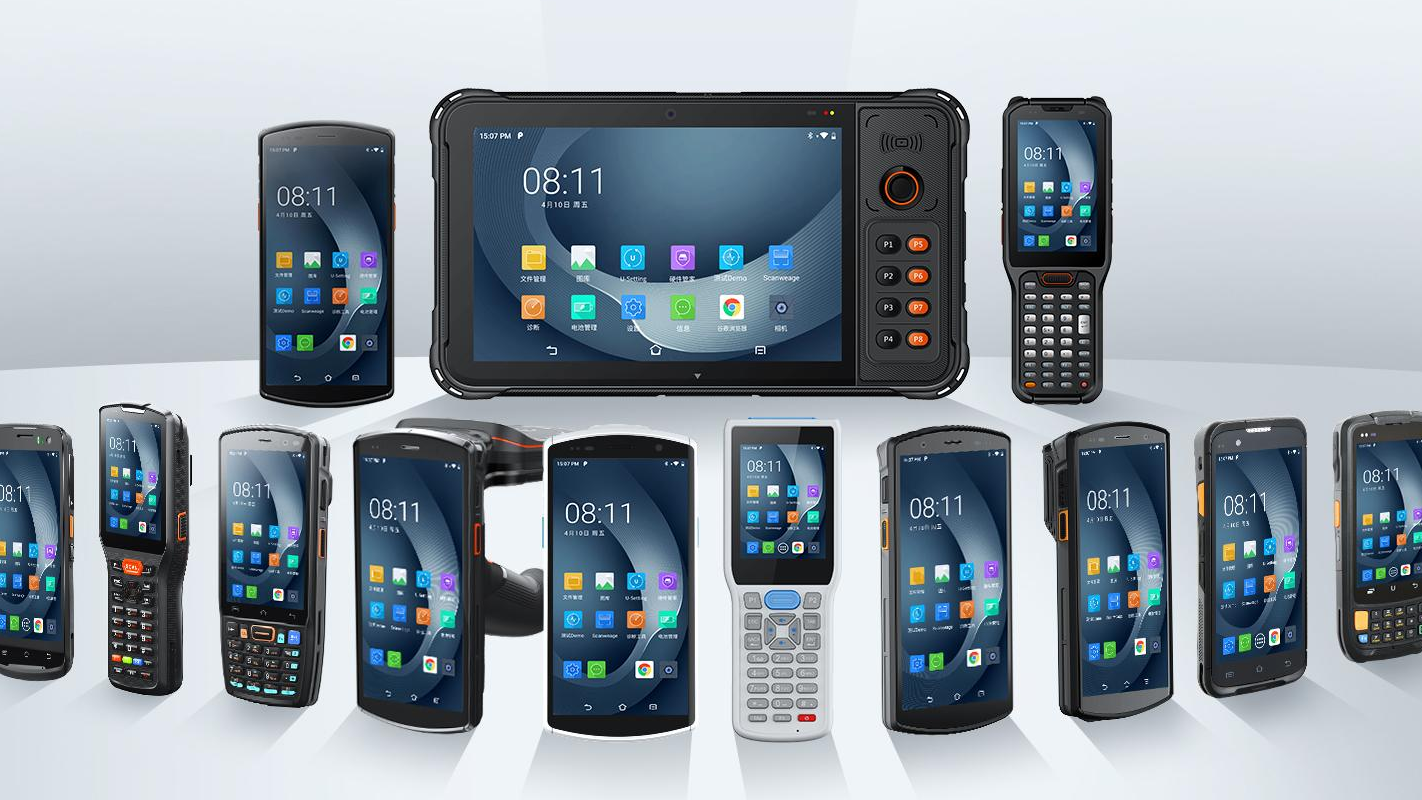Sustainable Practices in Handheld Mobile Computer Manufacturing
As concerns for the environment intensify, many businesses are increasingly recognizing the need to adopt eco-friendly practices in their operations. This growing emphasis on sustainability is not only a response to global environmental challenges but also a strategic move to meet the evolving expectations of conscientious consumers and comply with stringent regulatory standards.
The handheld mobile computer manufacturing industry is leading the way in adopting sustainable practices. The creation and disposal of electronic devices, including mobile computers, contribute significantly to electronic waste, prompting a reassessment of manufacturing processes and materials used in the sector. In this article, we take a closer look at the eco-friendly aspects of handheld mobile computer production, exploring the use of sustainable materials, recycling initiatives, and energy efficient designs. By examining the intersection of technology and sustainability, our goal is to highlight the innovative measures taken by manufacturers to reduce environmental impact while meeting the growing demand for advanced mobile computing solutions.
Importance of Sustainable Practices in Tech
As technology continues to advance at an unprecedented pace, the environmental impact of electronic waste has become a pressing concern. The disposal of outdated and obsolete electronic devices poses significant threats to the environment, with hazardous materials seeping into soil and water, contributing to pollution and potential health risks. The staggering growth of e-waste underscores the urgency for the tech industry to adopt sustainable practices throughout the product life cycle.

Role of Consumers and Businesses
The move towards sustainability in the tech industry isn't just a task for manufacturers; it's a collaborative effort involving consumers and businesses playing crucial roles. Consumers are increasingly leaning towards eco-friendly products and sustainable practices, shaping the demand for environmentally conscious technology. This change in consumer preferences is pushing businesses to make sustainability a core part of their values and operations.
Businesses are recognizing the advantages of embracing sustainable practices. Besides meeting consumer expectations, incorporating eco-friendly measures can lead to cost savings, enhance brand reputation, and ensure compliance with regulatory standards. As consumers and businesses advocate for sustainable technology solutions, manufacturers are motivated to innovate and create products that not only meet performance standards but also adhere to environmentally responsible practices.
UROVO Mobile Computer Manufacturer's Responsibilities
Consumers are increasingly recognizing the importance of eco-friendly choices, and UROVO's commitment to this cause aligns with the growing demand for environmentally conscious technology. The incorporation of sustainable materials and energy-efficient designs in UROVO's new handheld mobile computers reflects the company's dedication to reducing its environmental impact.
Moreover, this shift towards sustainability is not merely a nod to consumer trends; it's also a strategic move for businesses. UROVO, like many others, is realizing the multifaceted benefits of aligning with sustainable practices. Beyond meeting the expectations of environmentally conscious consumers, adopting eco-friendly measures can lead to significant cost savings for businesses. This is achieved through efficient resource utilization, reduced waste generation, and adherence to stringent regulatory standards.
UROVO's commitment to sustainability is not just a marketing gimmick but a strategic decision that can positively impact its brand reputation. As consumers and businesses alike advocate for sustainable technology solutions, UROVO's innovative approach positions it as a key player in the industry. By producing cutting-edge mobile computing solutions that prioritize both performance and environmental responsibility, UROVO not only meets current market demands but also anticipates and shapes the future of sustainable tech.
Sustainable Materials in Handheld Mobile Computers
Introduction to Sustainable Materials
In the realm of handheld mobile computer manufacturing, the adoption of sustainable materials marks a pivotal shift toward environmentally conscious practices. Sustainable materials refer to resources and components that are sourced, processed, and utilized in a manner that minimizes environmental impact and supports long-term ecological balance. The importance of incorporating sustainable materials lies in their ability to reduce the overall carbon footprint of electronic devices and mitigate the environmental consequences associated with traditional manufacturing processes.
Examples of Sustainable Materials
1. Recycled Plastics
One notable category of sustainable materials gaining prominence in handheld mobile computer production is recycled plastics. By diverting plastic waste from landfills and repurposing it for manufacturing, companies contribute to the reduction of resource consumption and energy requirements. Recycled plastics, when used in device casings and components, not only diminish the demand for virgin materials but also serve as a tangible step toward circular economy principles.
2. Bio based Plastics
Bio based plastics, derived from renewable resources such as cornstarch, sugarcane, or other plant-based materials, offer an alternative to traditional petroleum based plastics. These materials are biodegradable, reducing the environmental impact associated with plastic waste. Integrating bio-based plastics into handheld mobile computer manufacturing contributes to a more sustainable product life cycle and aids in decreasing dependency on fossil fuels.
3. Other Eco-friendly Alternatives
Beyond recycled and bio-based plastics, there is a spectrum of eco-friendly alternatives gaining traction. Materials such as aluminium alloy、magnesium alloy, and recycled metals present viable options for various components, packaging, and structural elements in handheld mobile computers. These alternatives showcase the industry's commitment to diversifying material choices and exploring innovative solutions that align with ecological sustainability.
Benefits of Using Sustainable Materials in Manufacturing
The shift toward sustainable materials in handheld mobile computer manufacturing brings forth numerous benefits:
Reduced Environmental Impact: Sustainable materials lessen the reliance on scarce resources, decrease energy consumption, and contribute to lower greenhouse gas emissions, mitigating the environmental impact of device production.
Enhanced Resource Efficiency: Utilizing recycled materials promotes resource efficiency by extending the lifespan of existing resources and reducing the need for extracting new raw materials.
Circular Economy Contribution: The adoption of sustainable materials aligns with the principles of a circular economy, fostering a closed-loop system where materials are reused, recycled, or repurposed, minimizing waste.
The Importance of Energy Efficiency
The significance of energy efficiency in the production of handheld mobile computers goes beyond just being a sustainability buzzword. It holds significant value in the quest for a greener future. Energy-efficient designs are not only in line with environmental conservation objectives but also bring a host of advantages throughout the entire life cycle of a device.
When manufacturers prioritize energy efficiency in the making, use, and disposal of handheld mobile computers, it translates into a smaller carbon footprint. This reduction in energy consumption contributes to a more sustainable approach, putting less strain on energy resources and leaving an overall positive impact on the environment. So, it's not just about following a trend; it's a practical and meaningful step towards a more eco-friendly and energy-conscious tech industry.
Innovations in Power Management
In the dynamic landscape of handheld mobile computers, innovations in power management play a pivotal role in enhancing energy efficiency. Manufacturers are continuously exploring and implementing advanced technologies and components to optimize power consumption.
Low-Power Processors
Integration of processors designed for energy efficiency without compromising computational performance.
Utilization of advanced fabrication processes to enhance the power efficiency of the processing units.
Improved Battery Technologies
Integration of batteries with extended power storage capabilities and advanced charging technologies.
Development of battery management systems to maximize the efficiency of energy storage and usage.
These innovations not only contribute to prolonged battery life but also ensure that the energy consumed is utilized more efficiently, reducing the overall environmental impact.
Extended Product Life cycles
Addressing sustainability in handheld mobile computer manufacturing extends beyond the production phase to encompass the entire product life cycle. Strategies aimed at increasing the longevity of devices contribute significantly to reducing electronic waste and resource consumption. Key considerations in promoting extended product life cycles include:
Modular Design
Adoption of modular design principles that allow users to easily upgrade or replace individual components, extending the overall lifespan of the device.
Facilitation of repairs and maintenance, reducing the need for frequent replacements.
Software Optimization
Regular software updates to enhance performance and compatibility, ensuring that devices remain functional and relevant over an extended period.
Promotion of backward compatibility to support older devices with new software releases.
Case Studies: UROVO Technology Company
UROVO's Commitment to Sustainability
UROVO Technology Company, a global industry mobile application solution provider, has emerged as a trailblazer in the realm of sustainable practices within handheld mobile computer manufacturing. Their steadfast commitment to environmental responsibility is evident in a series of initiatives designed to minimize ecological impact, conserve resources, and contribute to a more sustainable future.
Case Study 1: Use of Sustainable Materials
UROVO's emphasis on sustainable materials has yielded positive outcomes. By incorporating recycled plastics and bio-based materials into their mobile computers and rugged computing tablets, UROVO has not only reduced the demand for virgin resources but also contributed to a decrease in overall carbon footprint. This strategic move aligns with the preferences of environmentally-conscious businesses, showcasing a commitment to responsible sourcing.
Case Study 2: Extended Product Life Cycles
UROVO's focus on creating long-lasting products has resulted in substantial benefits for both businesses and the environment. The durability and longevity of UROVO mobile computers outshine typical consumer devices, offering businesses a cost-effective solution in the long run. This approach not only reduces the frequency of replacements but also prevents unnecessary landfill, reinforcing UROVO's dedication to sustainability.

Lessons for Businesses
|
Lessons for Businesses |
Strategic Use of Sustainable Materials |
Focus on Extended Product Lifecycles |
Investment in Renewable Energy |
|
Objective |
Showcase environmental responsibility and appeal to businesses aiming for sustainable procurement. |
Prioritize durability and longevity in product design to offer businesses a cost-effective and environmentally-friendly solution, aligning with the circular economy principles. |
Consider adopting renewable energy sources in facilities to reduce the carbon footprint and position the company as a conscientious corporate citizen. |
|
Key Actions |
Integrate recycled plastics and bio-based materials strategically in product manufacturing. |
Design products with a focus on durability, repairability, and modular components. |
Explore and invest in renewable energy sources for company facilities. |
|
Benefits |
Reduces demand for virgin resources. Decreases overall carbon footprint. |
Offers businesses a cost-effective solution in the long run. Reduces the frequency of replacements. - Prevents unnecessary landfill. |
Reduces reliance on non-renewable energy sources. Positions the company as environmentally conscious. |
|
Alignment |
Aligns with businesses aiming for sustainable procurement practices. |
Aligns with circular economy principles and businesses seeking environmentally-friendly solutions. |
Aligns with businesses prioritizing sustainability and seeking eco-conscious partners. |
|
Impact |
Enhances the company's reputation as an environmentally responsible supplier. |
Demonstrates commitment to a circular economy, reducing environmental impact. |
Reduces the company's overall carbon footprint and showcases corporate responsibility. |
|
Considerations |
Ensure the quality and performance of products are not compromised. Educate clients on the benefits of sustainable materials. |
Collaborate with clients to understand specific durability requirements. Provide repair and maintenance services. |
Assess feasibility and cost-effectiveness of renewable energy adoption. Communicate the transition to renewable energy to clients and stakeholders. |
UROVO's Sustainable Leadership
UROVO's case studies demonstrate a strong commitment to sustainable practices in the manufacturing of handheld mobile computers. Through initiatives focused on resource conservation and use eco-friendly metal, UROVO as a leader in sustainable practices within the tech industry. For businesses and corporations in search of advanced mobile computing solutions and a partner who prioritizes social and environmental responsibility, UROVO's approach consistently aligns with their values and corporate goals.



















































